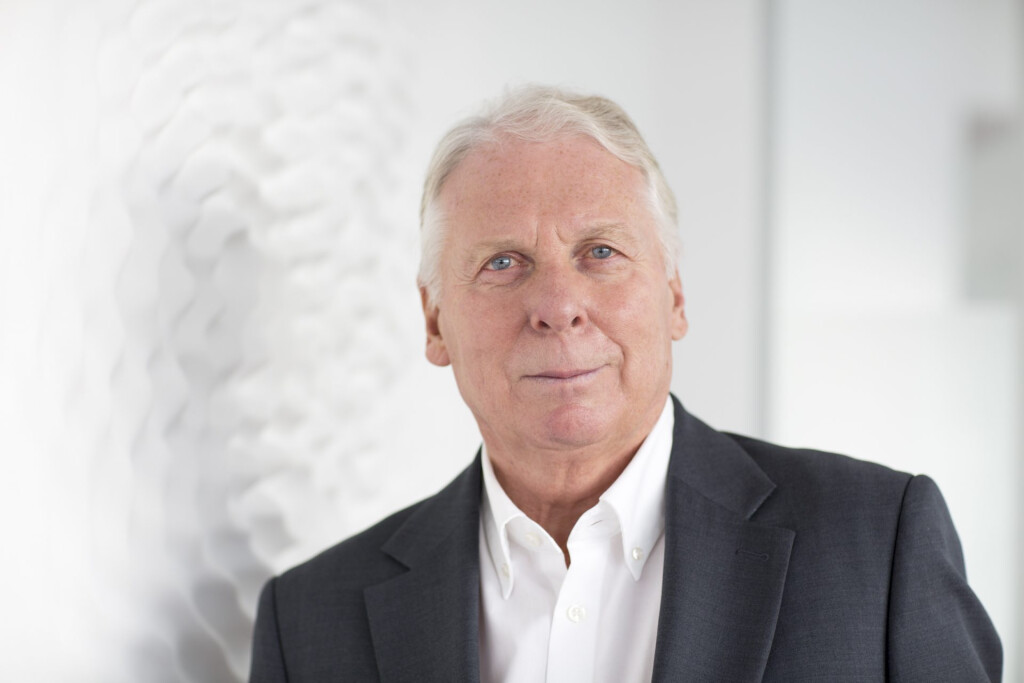Interview: What can Merz learn from Merkel's China policy, Mr. Schaefer?

Michael Schaefer, former ambassador to Beijing, explains in an interview why many underestimate China's dynamism and what geopolitical risks Germany now faces.
Friedrich Merz is the first chancellor of the Christian Democratic Union (CDU) after Angela Merkel, who is regarded as the architect of a pragmatic China policy. What can he learn from her way of interacting with China?
Composure, strategic patience and the ability to maintain an open dialog even in difficult moments. Merkel has shown that combining values and economic interests is possible without completely adapting to the other side or being patronizing.
What pitfalls should Merz's China policy avoid?
It should not fall into a purely ideological debate. China is a complex player with its own interests. A policy based solely on pressure and distancing could bring economic and political disadvantages. However, he must also not make the mistake of putting economic interests above fundamental values such as human rights and the rule of law.
The CDU/CSU's China strategy also describes China as a "systematic rival." Merz has also repeatedly criticized Merkel's China policy. What do you think of his course so far?
He will have to reconcile his rhetoric with actual political necessities. A purely confrontational course would hardly be practical. It is crucial that Merz develops and implements a China policy in cooperation with his European partners. Germany must adopt a constructively critical position here with France, Poland, the UK and other European partners. As much cooperation as possible, but it also needs to criticize issues where we are diametrically opposed to Beijing.
You were the ambassador to China for a long time and worked closely with Angela Merkel. Looking back, how do you feel about her approach?
Angela Merkel underwent a clear learning process regarding China. Before she visited China in 2007, she was very critical of Beijing. However, the mood on the Chinese side was open and accommodating. There was a noticeable desire to convey a differentiated image of China to her. One particular experience was her discussion at the Academy of Social Sciences. She spoke openly with students and professors about topics such as democracy, human rights and the rule of law. This direct dialog has continued over the years. During each of her trips to China, Merkel addressed human rights issues – not in front of the cameras, but always in political discussions. She also regularly invited civil society representatives to the German embassy, which was still possible at the time.
Should Merkel have adopted a harder line toward China much sooner?
She has certainly sent out clear signals. Just four weeks after her visit to China in 2007, she welcomed the Dalai Lama to Berlin, which sparked massive protests in Beijing and led to a several-month ice age in relations with Germany. This was a deliberate decision to show that Germany was pursuing economic interests and standing up for its values. Merkel repeatedly addressed complex issues without being moralizing. She was objective but consistent.
Nevertheless, her China and Russia policy has drawn much criticism nowadays. Justified or not?
Until 2013, I think her approach was balanced. As far as Russia was concerned, we should have been alarmed after Putin's speech at the Munich Security Conference in 2007 at the latest. There were no comparable warning signals regarding China at the time. Merkel voiced criticism when it was necessary but also facilitated dialogue. For instance, she initiated the first government consultations with China and promoted numerous cultural and scientific collaborations. These were important steps towards cooperation on an equal footing.
What role should Germany adopt in the EU's China policy?
A leading role. We are the most populous and economically strongest country in the EU, with the closest economic ties to China. Yet Germany must also develop a joint, critical but constructive China strategy with its European partners and prevent Beijing from driving a wedge into these relations. In my opinion, slogans such as "systemic rival" are not helpful here – what matters is a well-balanced combination of dialogue, economic competition and upholding our values in practice.
Is such a policy still possible, given the changed situation in China?
That remains to be seen. It is imperative that we speak to China as equals. China understands and respects strength. The West often struggles to draw red lines, only to fail to act consistently when crossed. Europe must adopt clear positions while remaining willing to cooperate.
Michael Schaefer was Germany's ambassador to China from 2007 to 2013. During his time in office, he witnessed events such as the 2008 Olympic Games in Beijing and the tensions following the awarding of the Nobel Peace Prize to Liu Xiaobo in 2010. After his diplomatic career, he headed the BMW Foundation Herbert Quandt until 2020.
Letzte Aktualisierung: 24. Juli 2025

